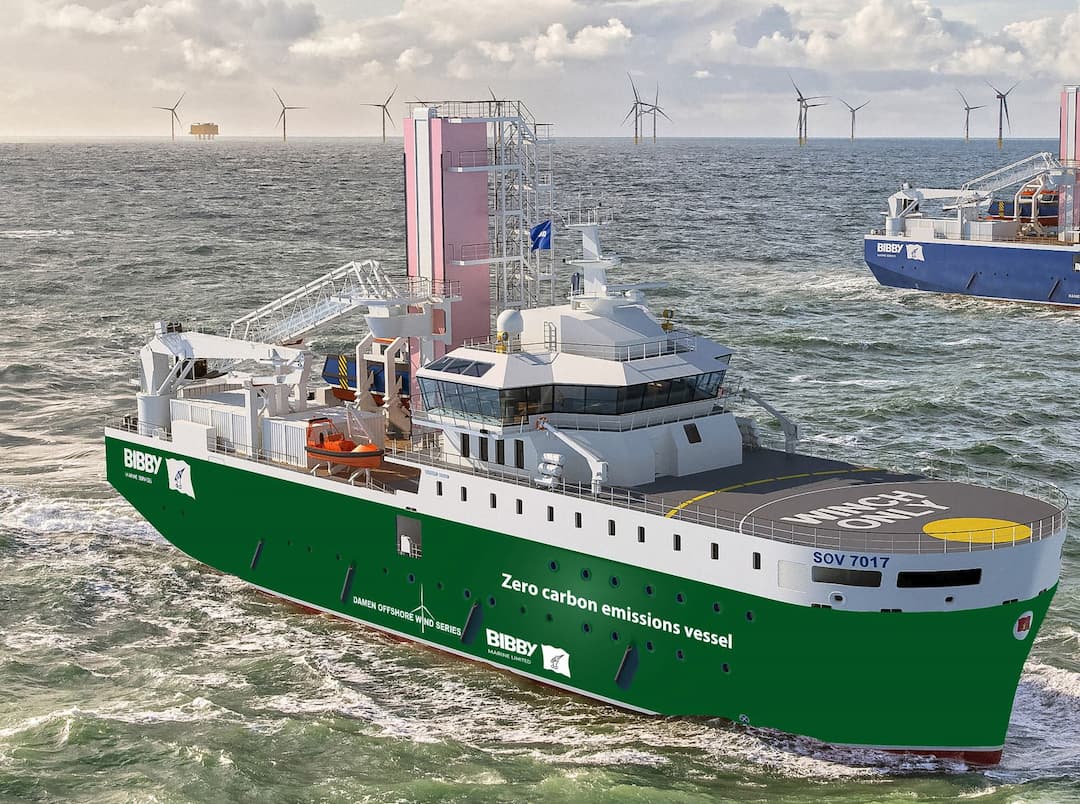As part of the industry’s proactive approach in getting behind the UK Government’s Clean Maritime Innovation and net zero goals, Bibby Marine and ORE Catapult have signed a collaboration agreement to work together towards the decarbonisation of current and future Service Operation Vessel (SOV) assets, including the potential upgrade of vessels, as well as maximising UK supply chain content in vessel production.
A major deliverable from the partnership is the Bibby WaveMaster Zero C project. With grant funding awarded by MarRI-UK in April 2020, its objective is to present the best zero carbon propulsion solution for an SOV, which also demonstrates potential for scale-up to larger ships. Using the current blueprints of its Bibby WaveMaster vessels, Bibby Marine aims to design a futureproof zero carbon vessel to add to its expanding fleet. The partnership will explore alternative fuel concepts such as hydrogen, ammonia, hydrotreated vegetable oil (HVO), methanol and battery, which will be reviewed against technical, environmental and cost-efficiency criteria. The project will also identify the developments needed in two UK ports, the Mersey and the Humber, for servicing vessels using alternative fuels.
Bibby Marine and ORE Catapult also form part of a consortium of offshore renewable energy and marine companies leading on a project to explore the viability of developing an offshore charging facility for vessels. Having a charging capability offshore should bolster an owner/operator’s confidence to invest in electrified vessels, providing greater flexibility to operate in the field for longer periods, whilst supporting a reduction in operations and maintenance costs.
Rob Osborne, Innovation Manager at Bibby Marine, said:
“The WaveMaster Zero C project aims to find the best suited zero emission fuel for the next generation of SOVs and similar sized vessels. Not only does this mean understanding the engineering challenges behind such a vessel design but also how the external stakeholders are moving and where the market momentum lies. ORE Catapult delivers on this and more through its innovation expertise and vast industry network. It is imperative that the maritime community also works together openly to help drive and deliver the green engineering that will help to fight the world’s climate emergency.”
North Sea Offshore Wind Vessel Decarbonisation
Bibby Marine is playing a major role as an industrial advocate of the decarbonisation of offshore wind vessel operations and maintenance in the North Sea, driven by a major UK Government net zero initiative, Operation Zero, which aims to break down the barriers to having zero emissions operations and maintenance vessels working in the North Sea offshore wind sector by 2025.
To do this, ORE Catapult and the Workboat Association have been commissioned by the Department for Transport and the Foreign, Commonwealth & Development Office to engage industry and develop an Innovation Roadmap – an evidenced-based blueprint to inform industry, investors, and policymakers how best to decarbonise the sector.
Bibby Marine are one of many industry organisations taking a leading role to input into key technical areas of the Roadmap, such as vessel design, port infrastructure and alternative fuels. The Roadmap’s results will also be presented by the UK Government on the international stage at COP26.
